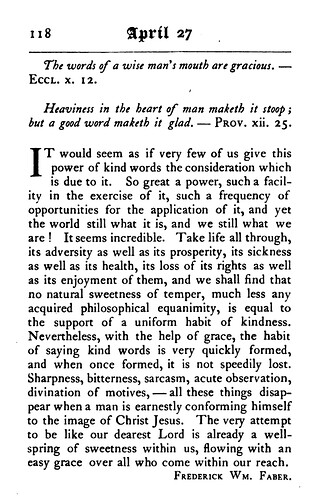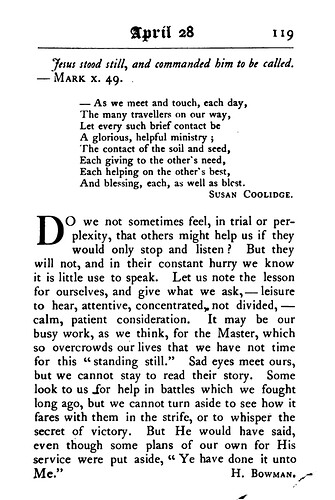The author has a precision problem… he said that 9! was “about 362,880”. ![]()
They are the nano-Lego blocks needed to tell a Ferrari from a Lamborghini.
That’s the readability I need. ![]()
When Écalle, now 76, was contacted by Quanta Magazine with questions about the history of resurgence, he responded by composing a 24-page treatise on the subject in six days — a treat for researchers hungry for more information about resurgence and its development. “It’s a treasure,” said David Sauzin, a mathematician at the Institute of Celestial Mechanics in Paris and renowned Écalle decoder.
That’s fun.
If the reader of Fear and Trembling can view Kierkegaard as attempting to sort his readers, as the few ironists I’ve ever known do, the odd nature of the book makes more sense. He dares us to try and make it through to the end. In the end, I believe he provides some rewards.
His discussion of doubt toward the end of Problema III is excruciating, but sensitive and real. See those quotes up father in the thread.
The reality of anxiety and distress in context of faith is incredibly refreshing, even though I am not naturally an anxious or distressed person. For a person to have faith, the there is risk involved. It isn’t as commonly advertised.
In the Epilogue he is actually fairly tender toward his reader — at least. We who stuck through it earned this reward, which is comprised of a few parts:
- “Whatever one generation learns from another, no generation learns what is truly human from a previous generation.”
- “[I]f someone is unwilling to remain standing at love as previous generations did, but want to go further, then it is just idle and foolish talk.”
- “As long as the generation concerns itself solely with its task, which is what is highest, it cannot become weary, for the task is always sufficient for a human lifetime. “
- “But life also has tasks enough for the person who does not get as far as faith and, if he loves them honestly, his life will not be wasted…”
It was worth the work of reading and working through it at my snail’s pace. I still need to do a good deal of thinking and writing.
Joy & Strength
“Woe to me! …For I am a man of unclean lips, and I live among a people of unclean lips…
Isaiah 6:5
Blessed is the one whose transgressions are forgiven, whose sins are covered. Blessed is the one whose sin the LORD does not count against them and in whose spirit is no deceit.
Psalm 32:1-2
Congratulations Kendel! You obvious took on something demanding and are better off for it.
I want that “what is highest” to do double duty here. Yes what is given to us to do is what we most need concern ourselves with. But also it helps to denote what is most high without concern for trademarks.
In your eye, pushy apologists.
Contra this.
C.H. Spurgeon (click on image or link for higher resolution)
Attempting again to highlight a section from the Epilogue of Fear and Trembling, and hoping it gets significant “air time” before it gets swept out of view, I post this longer segment in one piece.
The overarching theme of the book is the challenge of having faith and specifically the faith of Abraham, who is seen as the great human exemplar. Kierkegaard’s narrator, from the first page to the last, emphasizes that everyone has to go through the process of developing faith for themselves; they can’t start where someone else left off. And seeing how faith is something so challenging as only to be described as miraculous, how could anyone imagine going beyond it? Although Abraham was the father of faith, it took him 130 years to achieve it, the work of a lifetime. How could we expect to achieve more or more quickly?
EPILOGUE
Once, in Holland, when the price of spices went rather low, the merchants had a couple of loads dumped into the sea in order to drive prices up. This was a forgivable and perhaps necessary ploy. Do we need something similar in the world of spirit? Are we so completely certain that we have attained what is highest that—in order at least to have something with which to pass the time—there is nothing left for us to do other than to imagine, piously, that we have not come that far? Is this the sort of self-deception that the present generation needs? Ought it be educated to acquire a virtuosity in this sort of thing, or has it not rather attained sufficient perfection in the art of deceiving itself? Or does it not rather have need of an honest seriousness which, fearless and incorruptible, points out the tasks, an honest seriousness which lovingly preserves the tasks, which does not frighten people so that they want to rush headlong into what is highest, but keeps the tasks young and beautiful and lovely to behold i and beckoning to all, and yet also challenging and inspiring for noble souls (for the noble nature is inspired only by what is difficult)? Whatever one generation learns from another, no generation learns what is truly human from a previous generation. In this respect every generation begins in primal fashion: it has no task other than that faced by every previous generation; nor (assuming that the previous generation did not betray its task and deceive itself) does it come any further. What is truly human is passion, in which indeed the one generation perfectly understands the other and understands itself. Thus no generation has learned from another how to love. No generation gets to begin at any other point than the beginning. No subsequent generation has a task that is abbreviated in comparison to the preceding one, and if someone is unwilling to remain standing at love as previous generations did, but wants to go further, then it is just idle and foolish talk.
The task of faith is the work of a lifetime SK indicates. A life spent in the work of this one, single task has work enough.
That is interesting and tempting for someone like me to believe but my own reading is making me question whether any of us can bootstrap ourselves into so much as a shared understanding of the world without taking up the threads of a conversation which predates us. No man is an island. Yada yada.
I would never have made it through SK’s book and am still horrified by the tale of poor Abraham, but I could easily -happily- take a smidgeon at a time filtered through you for as long as you care to share.
I wonder if a dedicated thread would serve you better. Look how well Mervin’s thread on MacDonald stays on tract in spite of the many topics stirred up.
Well I at least am only able to take this on a smidgeon at a time, having to work with what I have available. But this next line makes me think of the upshot of every paradox - that the apparently impossible leads the way to understanding something new about good old reality.
In this case the seemingly impossible is that no one arrives at faith without enormous effort -and- no amount of effort is sufficient in itself. Something beyond my own powers is needed but that doesn’t mean I can just glide along into it without adding my best efforts. That’s as much as I can do without more sleep in the tank. In the words of the terminator, I’ll be back.
That’s a good question. I used to tell my students, “I can’t learn it for you,” and “It doesn’t help you, that I did my homework.” I think that is what’s meant here.
Kierkegaard was a serious student of philosophy and theology, seemed to have a broad as well as deep understanding of ancient as well as to-him contemporary thought. I don’t believe he could possibly be talking about ignoring what came before.
In the Preface, we have this [here translated] quote from Descartes:
“My present aim, then, is not to teach the method which everyone must follow in order to direct his reason correctly, but only to reveal how I have tried to direct my own. … But as soon as I had completed the course of study at the end of which one is normally admitted to the ranks of the learned, I completely changed my opinion. For I found myself beset by so many doubts and errors that I came to think I had gained nothing from my attempts to become educated but increasing recognition of my ignorance.”
Nobody comes out of the womb with that past knowledge. It’s work to acquire it, however much or little one acquires, and then it’s work to think it through for oneself, to make it ones own. It’s work to apply it. And that work must be done by each individual for her- or himself.
In the case of Abraham and faith in Christianity, nobody is “born into the faith,” which is largely the idea (held by many/most Danes who were part of the state church) that SK confronts in much of his work. Developing faith is something one must do for oneself. Facing the challenges of having faith in a world that is more and more rational can’t be done (well) by the work of a previous generation.
Yes. I think so.
But SK is addressing something different when talking about “going further” or “going beyond faith.” He was specifically confronting people who were trying to combine Hegel’s progressive view of history with Christian theology. There seems to have been a view that Christianity was teleologically progressive as well, and that such a progression could be seen in the acquisition and development of individual faith as well.
I think it’s necessary to keep one eye on Hegel throughout the book. Even the smallest awareness I have of his work, acquired through a few history classes and a food-history memoir about life in the Soviet Union, has been very helpful.
All that being said, there is a great deal in this book that is relevant to Christians who have no interest in Hegel (like me, for example). SK promotes an “honest seriousness” about doing the work of the task of faith – over the course of a lifetime.
One thing I value a great deal is the emphasis that this is all the work of a lifetime. His example from Descartes that I put earlier in this post, demonstrates that even the greatest minds veer off in directions they find unfruitful and must begin again. And that that veering and rebeginning is part of the work of the lifetime. The point isn’t that the work must be done perfectly the first time or is ever really done, but that we stick with it.
I like that a lot.
I wonder if a dedicated thread would serve you better.
While I agree that a dedicated thread would serve me and this topic of Christian existence and faith within the context of a rationalistic world, I can provide no hard science to go with it and have no interest in embarrassing myself by attempting to do so. My impression is that without a direct or specific connection to hard sciences, such conversations no longer fit the Forum guidelines and/or enforcement practices, although I would be more than happy to hear differently from the @moderators .
For that matter does a thread with a humanities bent belong in the open forum any longer? I have to admit that while I have a passing interest in science it is the humanities, along with thinking about faith in the context of psychology and philosophy that interests me more.
Anyone know anywhere to have those conversations on an open but gracious forums? I can appreciate how demanding the moderation of such a forums must be and how too wide a range of topics might overtax the available assets. Is there renewed interest in cutting back?
Just refound your Girl Reading a Letter poem up in slide 1207. I"m going to send it to my friend, Jane, with this Vermeer:
And looking at the painting I noticed all the draping fabrics and thought of Lia and a neat essay in the Islamic art section at the DIA, about the use of carpets from the Islamic world in medieval paintings, like Vermeer’s.
Thanks I’ll get her a look at this too. Thanks. Lia says thank you for her too.
Anyone know anywhere to have those conversations on an open but gracious forums?
Speaking at least for myself here, Mark, though I suspect I am far from alone among other moderators in this, I am jealous for your participation here, and don’t want you to feel like interesting philosophical stuff isn’t welcome here. Yeah, I know, we do have the directive that this is a science and faith web site, and we are obliged to mind that; but it also seems to me that the intractable demarcation problem allows us to have quite blurred edges around what qualifies as ‘scientific’ … and I for one think that so long as discussions remain valued and with content of value, that philosophy and thought are all wrapped up in stuff of interest around here.
Speaking of which…
I would happily contribute something like this to your thread, Mark, though I don’t want to hijack it away from discussion of McGilchrist. Maybe Kierkegaard has come up enough here that this is as good a place as any. But I really like Anne Lamott as an author, and having just started her book “Grace (Eventually)”, I have to share with you all this teaser from her Prelude.
At twenty-one I still believed that if you could only get to see sunrise at Stonehenge, or full moon at the Taj Mahal, you would be nabbed by truth. And then you would be well, and able to relax and feel fully alive. But I actually knew a few true things: I had figured out that truth and freedom were pretty much the same. An that almost everyone was struggling to wake up, to be loved, and not feel so afraid all the time. That’s what the cars, degrees, booze, and drugs were about.
By the time I had dropped out of college at nineteen, I’d acquired a basic and wildly ecumenical faith cobbled together from shards I’d gathered in reading various wisdom traditions - Native American, Hindu, feminist, Buddhist, even Christian, in a heart-stopping, kick-starting encounter with Kierkegaard’s Fear and Trembling. My best teachers were mess, failure, death, mistakes, and the people I hated, including myself.
Drugs often helped. I knew that if you had the eyes to see, there was beauty everywhere, even when nature was barren or sloppy, and not just when God had tarted things up for the spring. Often the people with the deepest insight looked as ordinary as any old alcoholic or serial killer. They might look like Siddhartha or Ananda Mai Ma, but odds were they resembled your bipolar cousin Ruth, or Mr. Burns from The Simpsons. Also, they could be extremely annoying. I already understood that on this side of eternity, we were not going to get over much or see very clearly, and that often what we saw was happening only in our minds: “Things are not as they seem. Nor are they otherwise.” Who said this? Rumi? or Ilya Kuryakin? No idea.
Speaking at least for myself here, Mark, though I suspect I am far from alone among other moderators in this, I am jealous for your participation here, and don’t want you to feel like interesting philosophical stuff isn’t welcome here
I definitely feel that and I think you know I value the many insights you share both through your MacDonald thread but pretty much everywhere else you wade in. Please do share anything that comes to mind for you in response to any of the McGilchrist excerpts. I know you’ll help me follow the connection if it isn’t obvious and I trust your judgement.
But what worries me is that the moderation you and others do here is a valuable but limited resource and you shouldn’t be exploited to extend that to topics beyond that targeted by the organization. I don’t expect it but I appreciate the opportunity to whatever extent it fits. I would offer to pitch in except you know how limited my understanding of Christianity is and how tone deaf I can be at times, like a Martian on Venus. My technological savvy is an even greater limitation. But just know I would help if I could as I really value what you do here.
, there was beauty everywhere, even when nature was barren or sloppy, and not just when God had tarted things up for the spring.
Yep. She read it.
Love, after all, has poets for its priests, and sometimes one hears a voice that knows how to honor it. But not a word is heard about faith: who speaks in honor of this passion? Philosophy goes further. Theology sits in the window, all tarted up, courting favor, offering to sell philosophy its delights.
“Preliminary: Getting Something off my Chest” Fear and Trembling, Søren Kierkegaard.
I would love to know what she found heart-stopping and kick-starting. It’s an incredibly challenging book, not only because of the way it’s written and what he is talking about, but what it does to the reader as she (or he) plods through. Like Abraham, on his donkey for 3 days after preparing for the journey for days. (It has taken me 5 months,and I still need to finish writing some thoughts up.) It’s a mirror and a fog. In it I saw myself and everyone I know and usually regretted looking. And then he said something ridiculously funny.
The greatest encouragement is that one must experience anxiety and doubt to experience faith, and that one cannot expect to go further than faith, so quit thinking about that. Be single-minded in your task, because it’s the only one worth pursuing and is the work of a lifetme.
Hardly Hallmark.




